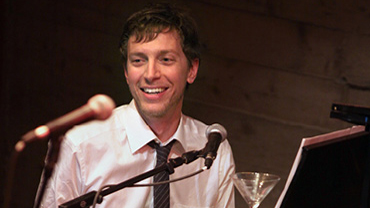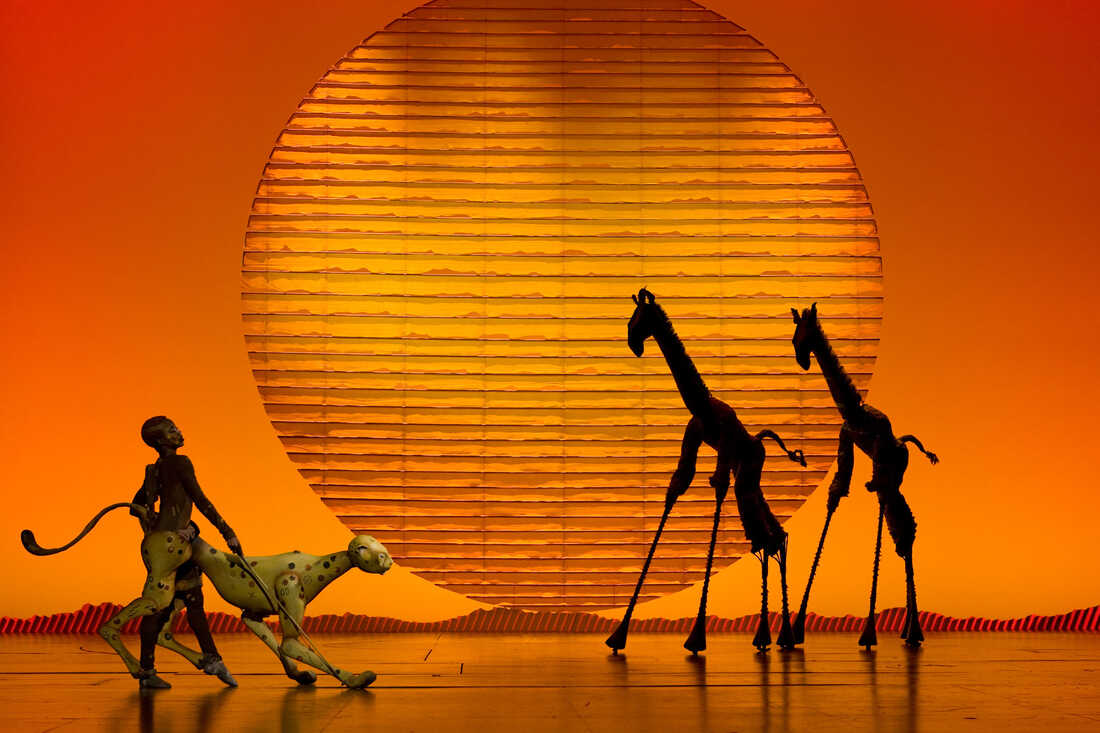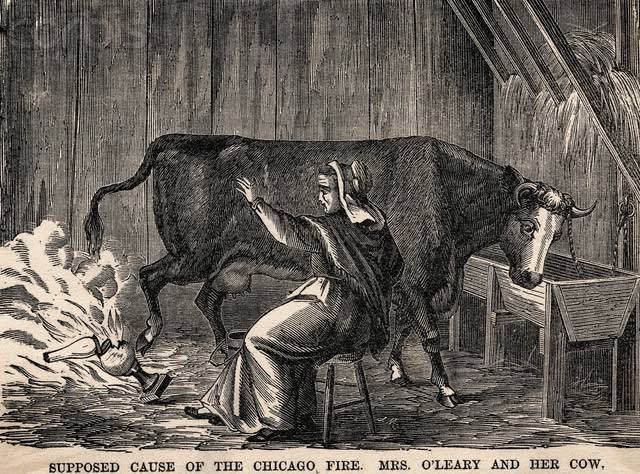Michael Friedman was my brother. A composer known best for such works as Bloody Bloody Andrew Jackson, The Fortress of Solitude, and several created with the theatre company The Civilians. He died in 2017 at 41, and I still miss him fiercely.
As I have gone through the stages of grief these past three years, I have considered myself deeply blessed that, in addition to my personal memories and treasures, I have his work. I have a tangible collection of songs and videos and words that I can hear and see and share with my children. In some ways, he isn’t gone, because his work lives on.
However, I have come to recognize that connecting my memory of him to his work is something of a trap. My personal loss has become inextricably linked to my role as executor of his estate and, thus, the continuation of his work and his position in our field. As a younger sister, I always connected a piece of my own identity to his extraordinary brain and talent. After he died, it felt impossible to let go. I wanted the memory of him to inhabit every space. I wanted to find as many ways as possible to honor him and his work, so that his art would continue to have a presence within contemporary theatre.
This forced extended break due to COVID has given me time to see the details of this trap more clearly. While I was deeply saddened that his most recent show, Unknown Soldier, posthumously brought to the stage by his collaborators, shuttered before it had barely begun, the massive industry loss within which that private disappointment took place didn’t allow me to raise that loss above all the others. And even more importantly, the reckoning we have seen in our country over racism—the forceful and powerful cries for true equity—has made me analyze and rethink my role as the white representative of the estate of a white cisgender male artist. I am working to ask myself new questions: If I am both personally and professionally striving toward antiracism in my daily life, how can I do the same in my role as executor? How do I respectfully and equitably place Michael’s work within the broader theatrical landscape of both the past and future? What place does his work have in a hoped-for new landscape?
I should state here that the role of executor is limited, particularly in representing a composer with only one Broadway credit. With licensing agreements in place and other artistic collaborators in the mix, my opportunity to influence Michael’s place within our field may not be significant. But it does exist, mostly in a proactive sense: advocacy on behalf of his work in certain settings and a vigilance about where and when it might be featured or included. Energy and action are required for promoting his work if it is going to be seen and produced.
As I’ve tried to make decisions about those areas of influence, I’ve found that I have to fight the “what would Michael have done” or “what would Michael want” voice. While it seems natural to say that my primary job is to listen to that voice, I’ve come to realize this rationale is not a legitimate way to make decisions. Michael isn’t here; he’s not operating in our current climate and facing today’s discussions. And I am not him. I am not the artist who is working to make a career, build a name, and make a living.
I believe that my brother wanted to shine a light on America’s failings through his work, that he tried to wrestle with whiteness, questions of white supremacy, and white responsibility. But he also wrote from a white male perspective and through a white male gaze, and caused the associated harm. That harm has to be considered along with the rest. Even as I write this, I am tempted to dive into the specifics of his work, defend it, find appropriate criticism for it—but that would in itself be the wrong kind of focus. There are so many past and present theatre artists who we must center now; I have to make a clear-eyed assessment of Michael’s place at this time.
I want generations of young theatregoers to hear and sing my brother’s music. I want to take my children to see his work remounted for years to come. But I also recognize the scarcity of opportunity and that there will always be more composers and theatre artists than the current theatrical landscape can support with resources and productions. If I try to hold a space for him, if I try to force a hold on that space, what does that mean for the BIPOC artists of the moment, who are speaking to us today with new voices? There are amazing creators and scholars working diligently to bring to light the glorious works of underrepresented artists from our past, plays and musicals pushed aside in a white-dominated field. These works too must have prominence of place. I’d love to believe that the American theatrical landscape is big enough for all those that have come before and all those that will come after, but I’m not sure I believe the space is large enough. At least not yet.
I continue to see my role as honoring Michael and everything he wanted his work to stand for. I spend a lot of time hoping that I’m not failing him. But do I honor him by working to push his work toward the center of the overly white and male contemporary theatrical canon? Do I fail him if I am no longer comfortable with that effort? Maybe honoring him is about taking up a strong position in this fight. Maybe honoring him is remembering his joy in the work of other artists and helping to raise them up. Can I do all of the above at the same time?
I am committed to supporting the BIPOC artists of today and to remembering those that came before. I will do this in my professional life as an arts administrator, even as I continue to interrogate my role as the executor of Michael’s estate and look for ways to further that commitment under that title as well. Perhaps what I most hope is for Michael’s work to be in dialogue with new works by BIPOC artists that can help to create a more diverse and reflective theatrical canon. I will also remain open to how Michael’s work might evolve as explored by innovative contemporary artists. Such collaborations could also broaden the complexity of the dialogue—something Michael would have relished and I believe would have seen as his creative purpose.
I don’t want my brother to be forgotten. And if I am going to be a part of the solution and not the problem, I must refocus my own journey: Personal grief won’t be healed by a name in lights, and it is an insufficient justification for not fighting for a more equitable future. I must continue to evaluate the right place for Michael’s work in a new ecosystem. I will care for his work necessarily and responsibly. It will be archived and made available. I will treasure it, and I will share it with my children throughout their lives. I will also introduce them to other artists and hope that they see a very different theatrical field when they grow up. I have the privilege of being able to step back and make decisions that are right for what I see now, and what I hope for in our collective future.
“Responsible Stewardship: Grappling With an Artist’s Legacy” by Marion Friedman Young. Originally appeared at AmericanTheatre.org, 10 May 2021. Used with permission from Theatre Communications Group.
To learn more about The Civilians and to access exclusive discounts to shows, join our email list at TheCivilians.org.
Authors
-

Marion Friedman Young (she/her) is the executive director of the Lewis Center for the Arts at Princeton University. She is the executor of the estate of her late brother, composer Michael Friedman.
-

The Civilians is a company that creates new theater from creative investigations into the most vital questions of the present. Through a number of artistic programs, the Civilians advances theater as an engine of artistic innovation and strengthens the connections between theater and society. An artist-led company, the Civilians creates and produces new theater and pursues its artistic mission through programs serving artists and the public. The company’s work is grounded in investigative theater, an artistic practice rooted in the process of creative inquiry that brings artists into dynamic engagement with the subject of their work. Artists look outward in pursuit of a question, often engaging with individuals and communities in order to listen, make discoveries, and challenge habitual ways of knowing. The ethos of investigative theater extends into production, inviting audiences to be active participants in the inquiry before, during, and after the performance. Since its founding in 2001, the Obie Award-winning company has supported the creation of 14 original shows, and its work has been produced at many theaters in New York, nationally, and internationally. Last season saw two highly successful shows: "Mr. Burns: a Post-Electric Play" at Playwrights Horizons, which was included in eight Top 10 of 2013 Lists, and "The Great Immensity" at The Public Theater. The Civilians’ work has been published by Dramatists Play Service, Oberon Books, Ghostlight Records and Playscripts, Inc.










